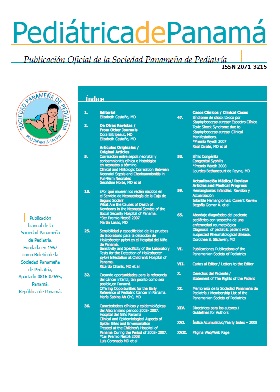About Other Journals-How could a pandemic advance the science of early adversity?
Authors
DOI:
https://doi.org/10.37980/im.journal.rspp.20201740Keywords:
epidemiology, toxicology, Pandemic, Early adversityAbstract
The article sets out the psychosocial consequences secondary to the COVID-19 pandemic, which may be experienced by children who belong to families that constantly live a climate of severe stress or adverse experiences such as domestic violence, abuse, mistreatment and problems of parental mental health. It suggests leveraging scientific evidence from early childhood research to develop and implement evidence-based practices that reduce risk and promote resilience within vulnerable families.
To assess the consequences of the COVID-19 pandemic, they propose careful measurement of pandemic exposure and disruptions. Some of the questions that parents can be asked include the following: The extent to which parents consumed COVID-19 related news and attempted to limit their exposure to children's news, children's fears that they or a Family member could become ill or die from the illness, losses, and stresses associated with COVID-19, including loss of jobs, income, childcare, and housing. The effects that the pandemic can produce in the increase of family conflicts, marital tension and / or domestic violence; and the separation of parents or the death of a loved one and the self-analysis of children on the effect of the pandemic are also important points to evaluate. Children can report their unique experiences using age-appropriate and validated assessments.
In summary, the article posits that the lessons of the COVID-19 pandemic have the potential to deepen rather than diminish the research agenda on adverse early experiences among children and families. This pandemic is an international tragedy, however, the greatest burden of morbidity, mortality and misfortune will be borne by those with the fewest resources. They mention that their purpose is not to turn this tragedy into academic gain, but to promote the promotion of the science of child development as a means to reduce the gap between favored and vulnerable families.
Downloads
Published
Issue
Section
License
Copyright (c) 2021 Pediatric Journal of PanamaDerechos autoriales y de reproducibilidad. La Revista Pediátrica de Panamá es un ente académico, sin fines de lucro, que forma parte de la Sociedad Panameña de Pediatría. Sus publicaciones son de tipo gratuito, para uso individual y académico. El autor, al publicar en la Revista otorga sus derechos permanente para que su contenido sea editado por la Sociedad y distribuido Infomedic International bajo la Licencia de uso de distribución. Las polítcas de distribución dependerán del tipo de envío seleccionado por el autor.






